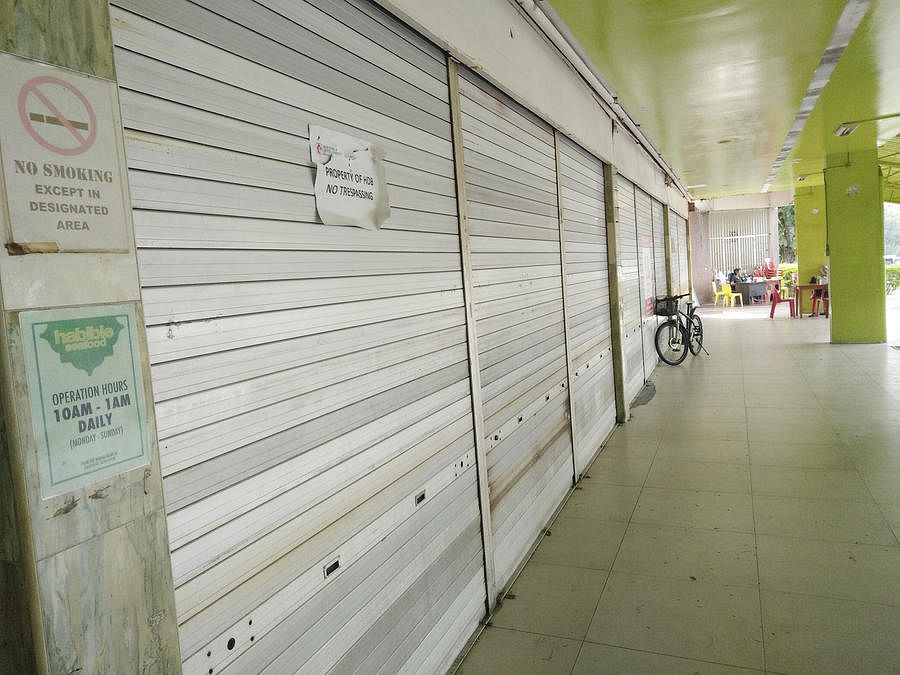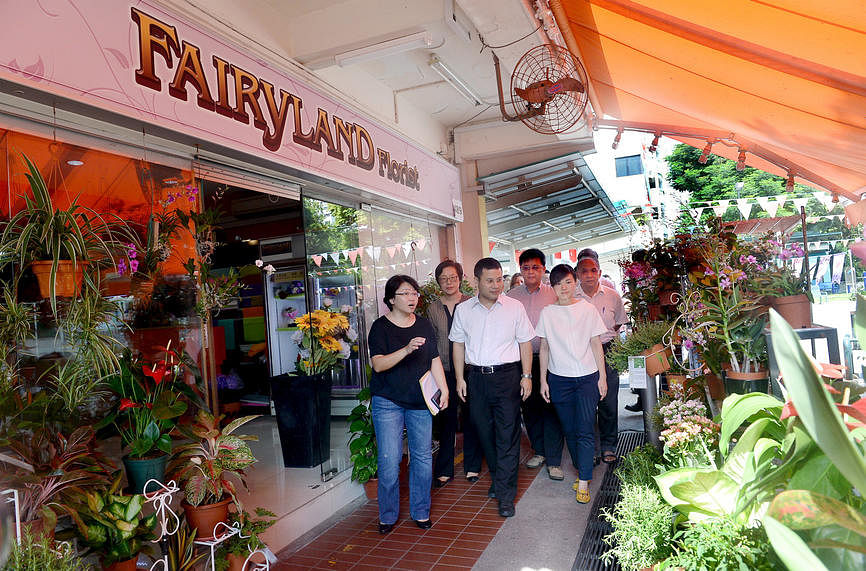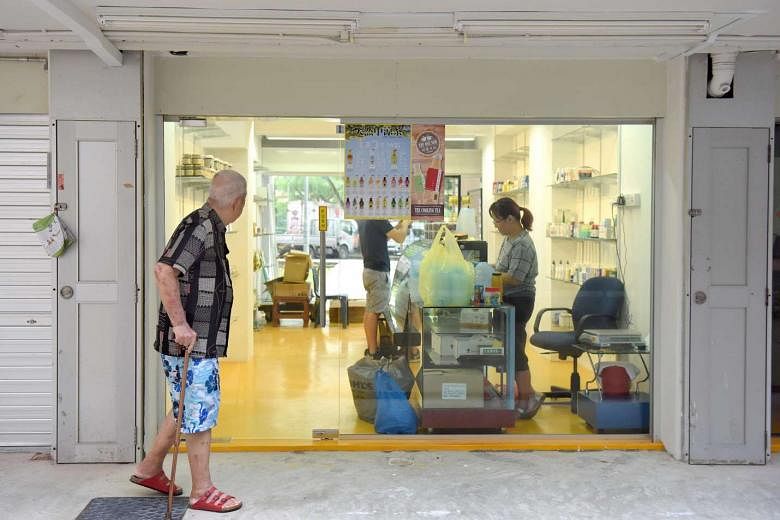SINGAPORE - I love living in Singapore, a start-up city that just got ranked No. 1 when it comes to having start-up talent globally.
It's a city where enterprising young people are trying out different business ideas, creating novel services to make life more interesting and convenient and designing new products that consumers didn't know they need until they see a prototype of it.
In the last couple of months, I've signed up for a food delivery service that sends me frozen dinners. I order in packs of 14, and they get delivered in microwaveable containers.
Each pack has a one-third portion of protein, carb, and vegetable. There's meat, chicken, beef options. Defrost overnight, then pop it into the microwave. In six minutes, a piping hot dinner is on the table.

It's not gourmet, but tastes rather good. It claims to be healthy, with a calorie count of about 500. I've been eating these meals for a few weeks now, and all I can say is that I don't miss the MSG-laden, oily economic rice or hor fun that I would tend to grab for dinner in the past.
Fitness Ration is run by a group of young people aged 21 to 27. The managing director is 24, according to the website.
Then, the other day, I saw an article in my Facebook feed about a stand that you put on your desk to hold your computer, which can zoom up so you can work standing at your workstation.
Right now, I use Muji storage boxes, tissue paper boxes and stacks of books to raise my computer and keyboard when I want to work standing at my desk.
The idea of having that handsome-looking contraption on my desk which I can raise with a press of a button, was tempting. It comes with an app - of course it does! - that you can set to prompt reminders to stand or sit, and that helps you track calories burnt.
I fell for it. I signed up and am expecting delivery of the Altizen desk in April.
Call me a start-up sucker, but I like supporting these initiatives by enterprising young people.
When I click Buy, I'm not just buying a meal delivery service - I'm supporting the start-up dream of a bunch of young folks out to change the world, one frozen meal or standing desk at a time.
At the same time, I'm mindful of the fact that each start-up that takes off might spell the end of one, or two, or five, traditional small business.
The new healthy food delivery service is just a new twist to the traditional tingkat, where you get packs of rice, soup and three dishes delivered daily to your home. I think tingkat will be around for a while yet in Singapore, as it offers Chinese or Asian style staples, and is much cheaper than most of the online-based services - a tingkat meal costs about $5 per person, while the healthy food option tends to be double that at least.
But if some of the food delivery services take off, would traditional tingkat caterers lose market share?
Sometimes, it seems to me that start-ups benefit from being on the right side of history. There are many government grants for them. Consumers like me are willing to support them to try new products and services.
In contrast, many of our small and medium enterprises, especially those in the heartlands, are facing problems, squeezed by rising rentals and manpower shortages, and falling demand.
As a consumer who grew up with HDB shops and still frequent them, I don't want them to fade off and close shop. I still like traditional kopi at the coffee shop more than any Starbucks brew in a cafe. When I need something for the house like a laundry basket or S hooks, I head to the HDB household goods sundry store, not department stores.

My hope is that start-ups and traditional businesses learn from each other and adopt each other's best practices.
I'd love a food delivery service that sends me healthy, nutritious, flash-frozen, easy-to-reheat Chinese meals. I'd love to go to a HDB photo-printing shop that can convert my printed analog photos into a digital format and lay them out into a nice photobook, without me having to spend hours choosing templates online and designing them myself.
I got to thinking about traditional shops and start-ups, after reading an article about what the Canadian city of Quebec is doing to help small businesses survive.
Among the many articles I read in the last two weeks as part of my job picking what to reprint in The Straits Times, that was one that stood out and remained in my mind. We reprinted it on March 21, Tuesday, under the title Start-ups are great, but SMEs run by baby boomers also need nurture.
In the article, authors Sandrine Rastello and Frederic Tomesco say that small businesses create many jobs, but many are run by baby-boomers nearing retirement. In Quebec, almost 60 per cent of Quebec's small firms are expected to change hands in the next decade, but only 10 per cent have a formal leadership plan.
"Up to 10,000 entrepreneurs, or about 6 per cent of the total, were at risk of closing their companies by 2023 for a lack of succession plan, jeopardising as many 139,000 jobs, according to a 2014 Chamber of Commerce of Metropolitan Montreal report," said the article.
Enter the city's planners, working with universities and businesses to facilitate "transfers" - as the process of business changeover is called. Young people (some offspring of the original owners) are identified and trained to take over small businesses. There are tax incentives for "transfers" of businesses within families.
Transfer agencies or companies also work to help match buyers and sellers of business, including some that operate online, letting people post their business profile and expectations to find buyers. One boss of a transfer company said it takes about three to five years to work out a smooth transfer of business.
At the top level, the business of transfers gets strong support. According to the article, "Canada's second-largest public pension fund manager recently unveiled a plan to invest C$250 million (S$262 million) in mid-size companies that are planning a transfer".
On the ground, the agencies that do the matching describe a process that is highly personalised and time-consuming to match business sellers with new buyers.
One woman training to take over her parents' shop observed: "Everybody is talking about starting their own company," she said. "There are lots of amazing companies already started."
The article struck a chord with me because I could see that Singapore has a similar problem as Quebec. Both are rapidly ageing cities with a large pool of small companies headed by ageing bosses who don't have anyone to take over their business.

The difference is that in Singapore, we talk about disruption, which is a polite way of saying, let the market decide, and let the old businesses just die out.
The problem of course is that each business that closes may cause 10 workers to lose their jobs.
Quebec isn't giving up on their small businesses. I wonder if we should do more too, learn from Quebec and work actively to match energetic young people to some of these ageing businesses.
Opinion Editor Chua Mui Hoong blogs on Saturdays on notable issues and commentaries.


